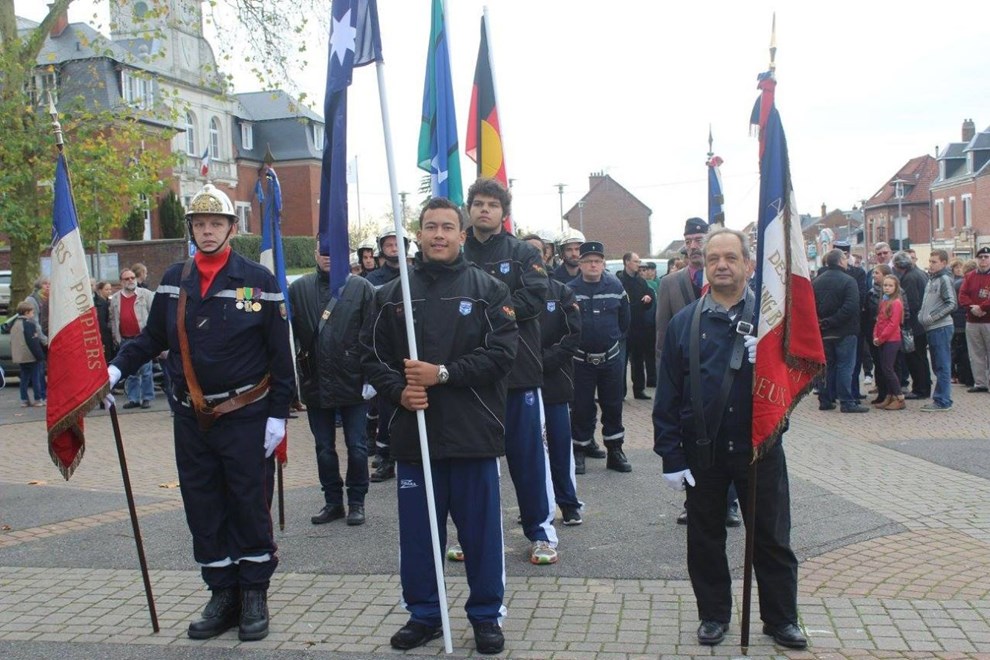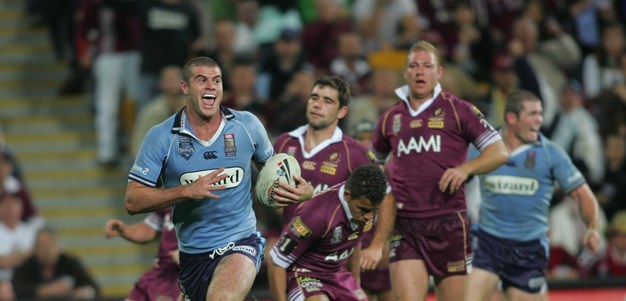

It will forever be the haunting memory from the trip of a lifetime.
But, perhaps, it’s the defining moment from a meaningful journey, one designed to unite people all over the world through the sharing of different cultures.
Embarking on a once-in-a-lifetime trip after months of planning, the 16- and 17-year-olds of the 2015 NSWRL Indigenous Young Achievers Tour couldn’t have been more excited about being given the opportunity to share their heritage and history throughout Europe.
Yet, for all the enthusiasm and optimism, the young men were faced with some of recent history’s most harrowing times.
More than 130 were killed across the French capital as terrorists struck innocent civilians as they went about their routines – dining in cafes; enjoying a concert; watching a sporting match – at the time the Young Achievers were in the country.
“At 7pm the night before, we were all at the Notre Dame where one of the big attacks happened at the café around the corner,” NSWRL Indigenous Rugby League Development Officer and tour manager Steve Hall said.
“It was relief more than anything to get out of Paris. Perpignan is nine hours away. When we got there, everyone’s concern was what happened in Paris. When everyone realised we were nine hours away, everyone could relax a bit.
“The biggest thing was the parents not knowing. All the parents are in Australia and we’re there in Europe, and they don’t know what’s going on. All the parents were contacted to allay all their fears. We got to the stage where we were looking at packing up and going. We just couldn’t change flights. We actually asked Qantas and rang them twice. If Qantas accommodated it, they would have more than likely left.
“None of the boys wanted to go home though. They all wanted to stay.”
It would be understandable if the side decided to leave the chaos amid Europe and return to the safety of Australia. But the trip continued – and it took on a more profound meaning.
“[Our priority was] to learn about culture and showcase our culture over there, which we did,” Hall said.
“We danced and did war cries before every game and at the Australian Embassy. Everywhere we went, in the street even. When they did it in front of the Notre Dame Cathedral, they had 300 people standing around and the boys were pulling people out of the crowd to dance with them.”
It was a momentous tour, headlined by a visit to Villiers-Bretonneux on Armistice Day followed by an historic match as the first Aboriginal side to play on the Somme Battlefields – in addition to visits to the Australian embassies in Paris and Rome.
“It’s very emotional – few tears in the eye,” Hall said.
“In the past we went there just to look around, but this time we were invited by the Mayor to be part of the service and everything. They met in the street and marched to the memorial. We had three boys carrying the Australian, Aboriginal and Torres Strait Islander flags. We had another two boys lay the wreath at the memorial.
“When we were driving there, we told the kids that 100 years ago, kids their age were coming to fight in the war. It made them – and all of us – think about it actually.
“There’s 14 known Aboriginals buried there (at the memorial).
“There could be another 50 but nobody knows because a lot of them had to change their names and ages like everyone else to join the war. We went to each of the graves and placed a cross on them. We wanted to make it a reconciliation matter, so the boys put a lot of crosses on the unknown soldiers’ graves.”
The trip was ultimately a culture shock to many. From landing on the opposite side of the world, taking in heritages more than 3,000 years old, to visiting some of the globe’s most famous tourist attractions including the Eiffel Tower, The Colosseum and Trevi Fountain, sometimes the differences proved too much for the inexperienced adventurers.
“Most of them gained an appreciation of what they have at the moment,” Hall said.
“With what everyone else does over there and what they’ve got at home… [the trip] makes them appreciate being home, having a bowl of Cornflakes or a bit of bacon and egg. One place we went to, the Australian Institute of Sport, had bacon and eggs for breakfast. The boys ripped into it for those few days.”
The Young Achievers felt far from home on a number of occasions – and, sometimes, the locals noticed it too.
“We were supposed to go to Barcelona the day after the attacks but the French closed the borders,” Hall said.
“We went down to a beachside near Perpignan, and we were walking when some old sheila dobbed us in and called the coppers. The coppers showed up with sirens sounding saying there were reports of strangers walking around not speaking the language.”
Despite the challenges, the side thrived in their mission, with Hall declaring the seventh adventure a resounding success for everyone involved.
“This trip was more impressive than anything we’ve ever done with going to Italy, and going to the Australian Embassies in Paris and Rome,” Hall said.
“Normally sides don’t get into the Embassy. Usually only the national sides are invited. It was a really huge honour.
“We’ve been invited back in 2018 by the French Rugby League because it’s the first opportunity they had to play on the Somme Battlefield as well. They’re keen to invite us back for 2018 for the 100-year celebrations of World War I. They want us to come back for that.”
During a tragic period that shook the world, the Young Achievers’ trip provided the touring group with some deeply poignant moments.
“Having our kids there at the Australian Embassy in Paris to showcase our culture [was very significant],” Hall said, “because the ambassador got up and did the traditional dance alongside the boys, every one of his staff danced as well.
“When we went to the Notre Dame, there was a lady singing there in French. When the boys heard the music they conjured over there into a circle and started dancing. They ended up getting into the middle and dancing before everyone came to look. The boys started getting others watching to come and dance with them including a bunch of Americans. That was pretty special.”
It’s those moments and memories that will stay with the participants – and everyone they meet and encounter in their days ahead – for the rest of their lives.
“The whole tour and the support we got from home was good. KARI Aboriginal Resources put so many dollars into it. It’s been a really good feeling with the support and the NSWRL,” Hall said.
“The whole thing is you hope the boys take something positive out of it and go back and be positive role models in their community. Before we left, both Indigenous and non-Indigenous communities were brought together to fundraise for a particular kid.
“That was another good thing to come out of it as well in giving the kids the opportunity to go over there – most kids won’t ever get to do that. It’s unlikely that kids from Bourke and other rural communities will get to go back again.”
If more of these types of trips happened – and people learned to better tolerate, respect and appreciate different cultures and backgrounds – the world would be a much better place.




